Publications
Articles, publications, books, tools and multimedia features from the U.S. Institute of Peace provide the latest news, analysis, research findings, practitioner guides and reports, all related to the conflict zones and issues that are at the center of the Institute’s work to prevent and reduce violent conflict.
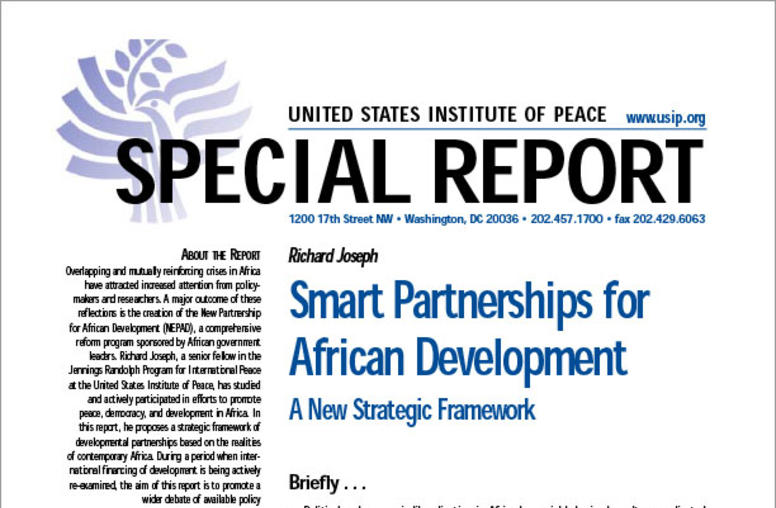
Smart Partnerships for African Development: A New Strategic Framework
Summary Political and economic liberalization in Africa have yielded mixed results, complicated by persistent armed conflicts. The New Partnership for African Development (NEPAD) is at the forefront of efforts to promote enhanced investments in poorer countries that undertake political, legal, and economic reforms. Although good governance has been high on the agenda of African countries since the 1980s, state erosion, corruption, and institutional weakness characterize the public s...
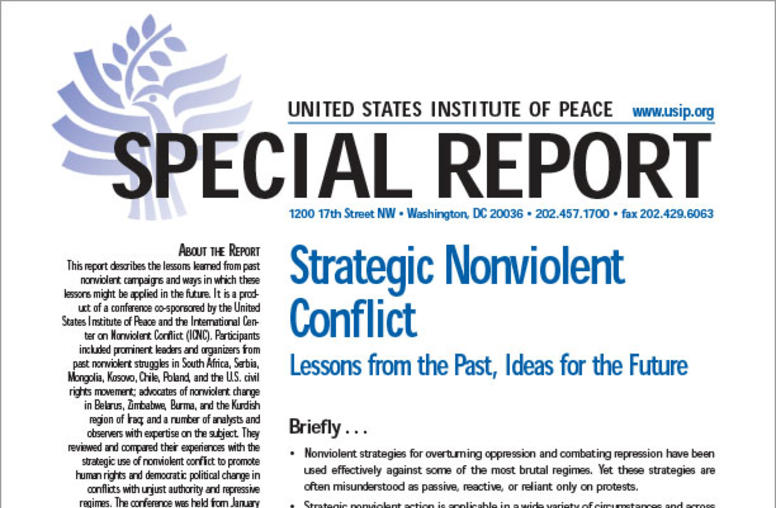
Strategic Nonviolent Conflict: Lessons from the Past, Ideas for the Future
Summary Nonviolent strategies for overturning oppression and combating repression have been used effectively against some of the most brutal regimes. Yet these strategies are often misunderstood as passive, reactive, or reliant only on protests.
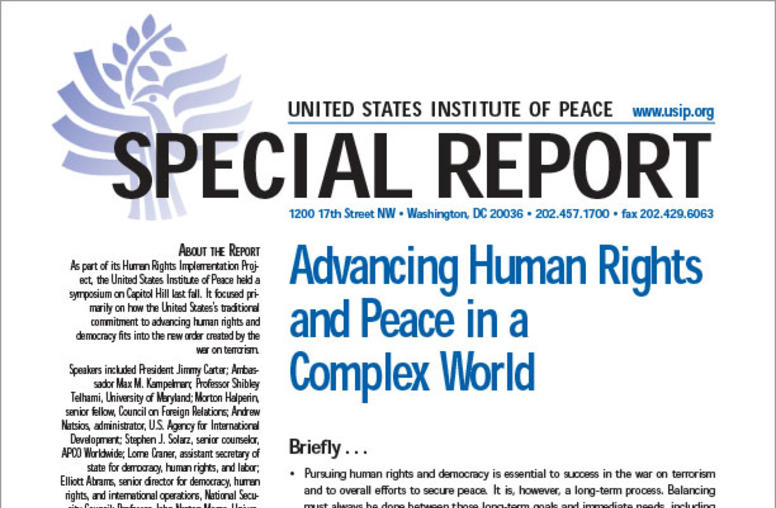
Advancing Human Rights and Peace in a Complex World
Summary Pursuing human rights and democracy is essential to success in the war on terrorism and to overall efforts to secure peace. It is, however, a long-term process. Balancing must always be done between those long-term goals and immediate needs, including ending the terrorist threat. Democracy, a pillar of respect for the rights and value of each individual, remains key to obtaining lasting peace and a resolution to a number of scourges that face the world today, including terrori...
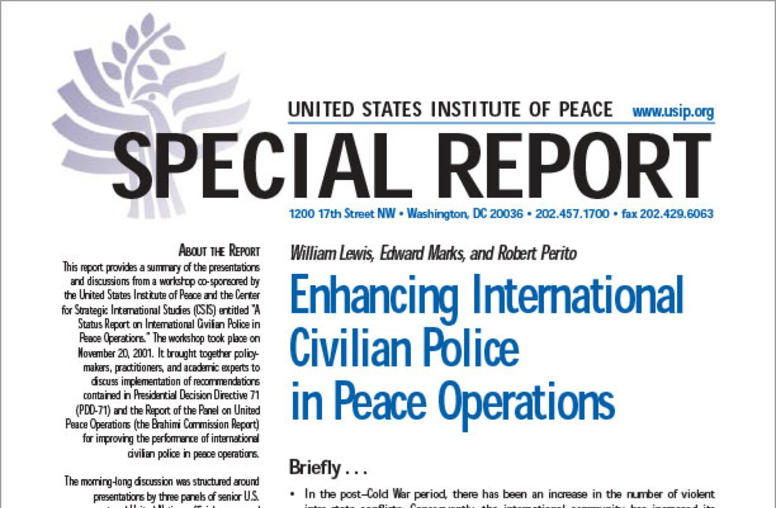
Enhancing International Civilian Police in Peace Operations
In the post-Cold War period, there has been an increase in the number of violent intra-state conflicts. Consequently, the international community has increased its focus on international peacekeeping and post-conflict reconstruction.
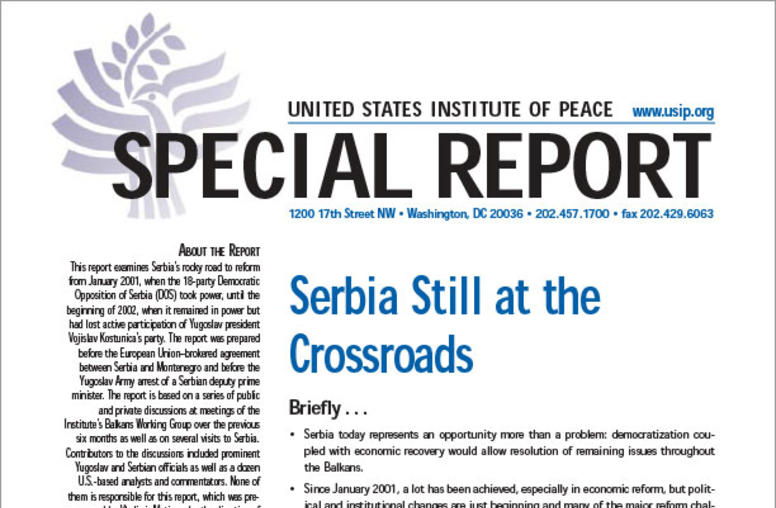
Serbia Still at the Crossroads
Summary Serbia today represents an opportunity more than a problem: democratization coupled with economic recovery would allow resolution of remaining issues throughout the Balkans. Since January 2001, a lot has been achieved, especially in economic reform, but political and institutional changes are just beginning and many of the major reform challenges Serbia faces remain unmet.
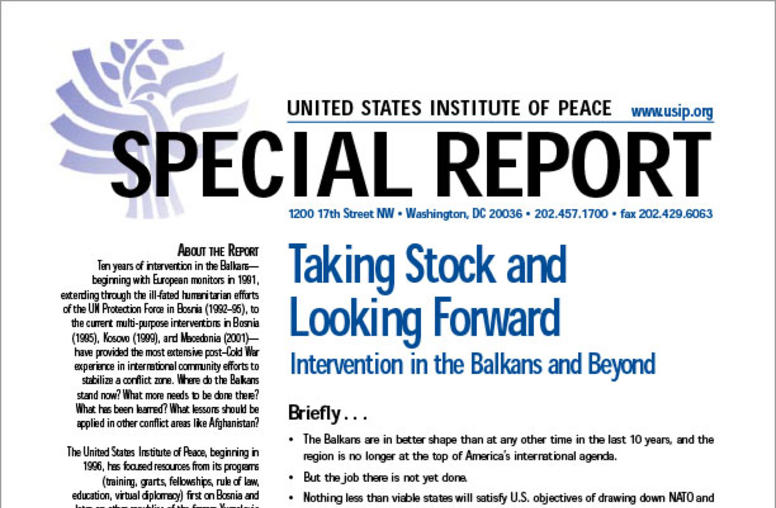
Taking Stock and Looking Forward: Intervention in the Balkans and Beyond
Ten years of intervention in the Balkans—beginning with European monitors in 1991, extending through the ill-fated humanitarian efforts of the UN Protection Force in Bosnia (1992–95), to the current multi-purpose interventions in Bosnia (1995), Kosovo (1999), and Macedonia (2001)—have provided the most extensive post–Cold War experience in international community efforts to stabilize a conflict zone. Where do the Balkans stand now? What more needs to be done there? What has been learned? What...
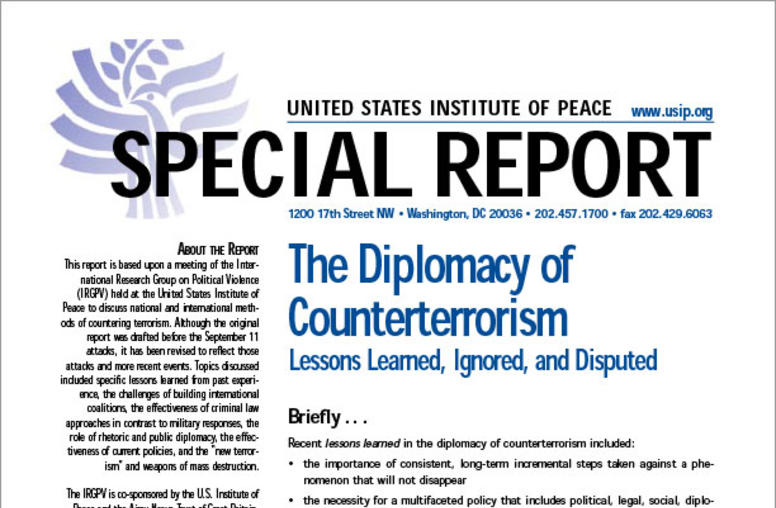
The Diplomacy of Counterterrorism: Lessons Learned, Ignored, and Disputed
Summary Recent lessons learned in the diplomacy of counterterrorism included: the importance of consistent, long-term incremental steps taken against a phenomenon that will not disappear the necessity for a multifaceted policy that includes political, legal, social, diplomatic, economic, and military elements the need to develop realistic expectations and avoid a crisis mentality that is ultimately satisfying to terrorists, playing down military analogies that might lead to pub...
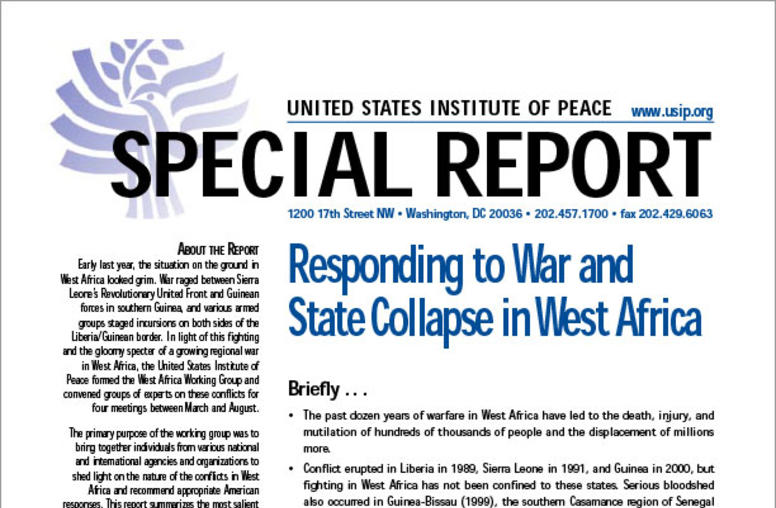
Responding to War and State Collapse in West Africa
Summary The past dozen years of warfare in West Africa have led to the death, injury, and mutilation of hundreds of thousands of people and the displacement of millions more.
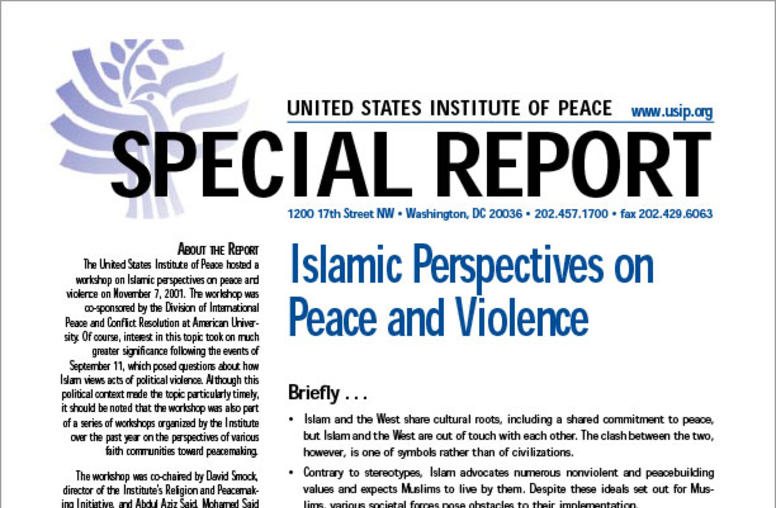
Islamic Perspectives on Peace and Violence
Summary Islam and the West share cultural roots, including a shared commitment to peace, but Islam and the West are out of touch with each other. The clash between the two, however, is one of symbols rather than of civilizations.
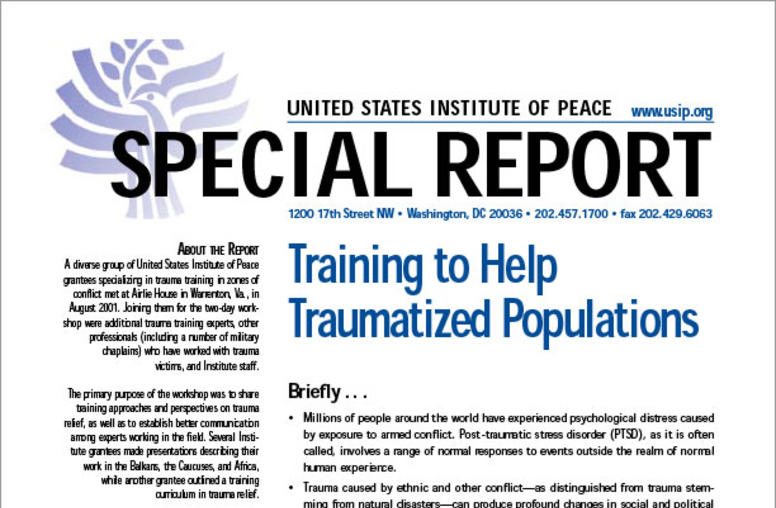
Training to Help Traumatized Populations
Summary Millions of people around the world have experienced psychological distress caused by exposure to armed conflict. Post-traumatic stress disorder (PTSD), as it is often called, involves a range of normal responses to events outside the realm of normal human experience.